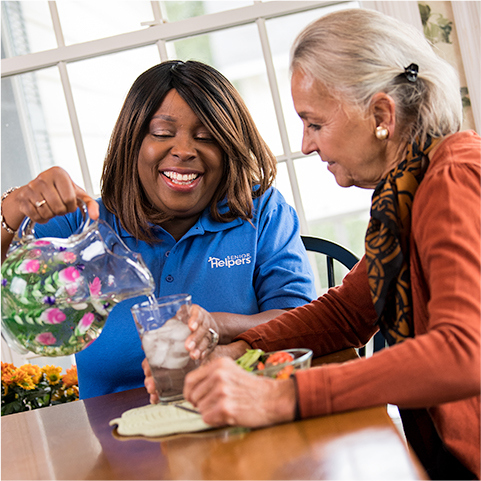Is Your Aging Adult’s Neighborhood Conducive to Helping Her Stay at Home?
There is no place like home but is the neighborhood safe for your aging adult? Aging is easier when the neighborhood is favorable, and the community around your aged family member supports him/her in multiple ways. Here are just a few of the things you might want to check when considering whether it is safe for your elderly family member to continue staying home.
Access to Resources
Community resources such as easy access to hospitals and senior centers are critical to your aging adult’s wellbeing. If it is a small community where these types of resources are not available or accessible, then the senior may feel their loss significantly. Though there may be substitutes for those such as a church group made up of other people of the same age group, you may still need to actively seek these resources.
Access to Stores, Pharmacies, and Other Shopping
Whether large or small, most communities provide sufficient access to shopping for normal everyday items, such as grocery stores, bakeries, pharmacies, and other types of corner shops. That means your senior should have a choice of various items at her disposal and shouldn’t have to risk traveling into a larger area in order to get what she needs. Alternatively, your elderly family member may prefer to order what she needs and have it delivered to her, which is much more preferable option.
Transportation
Many communities have diverse means of transportation that are accessible for the elderly. If your aging adult lives in the suburbs, then she may be extremely dependent on a vehicle. Driving herself to where she needs to go may not always be safe, which is the option of hiring home care providers in Jacksonville for transportation can be a perfect solution.
Security
You must find out how safe and secure the area is too. What is the current crime rate? Crime levels can change immensely over time. The fact that you or your elderly family member has stayed in the same place for years doesn’t mean it is still as safe as it once was. You can talk to the local police department in the area about crime statistics to get a more detailed and accurate idea of what is going on. If the environment is safe and secure, then it becomes easier for her to stay in her own home. You can try to offset some of these difficulties, but probably not all of them.
When your aging loved one feels safe at home, it results in feelings of confidence and happiness that allow him/her to enjoy her life without worries. You might need to check the neighborhood to ascertain if it is secure for your elderly family member.
Start Some Conversations with the Neighbors
It is better to be friends with your aging adult’s neighbors if possible. That way, they can keep watch over your senior and report what’s going on to you. It is the right thing any friend would do. They may also have some information to share with you about the neighborhood. They can share with you all the changes and even things you didn’t think to ask in the first place!
Take a Walk or Drive around the Neighborhood
Take some minutes to walk or drive around the neighborhood. This way, you will be able to get firsthand information on what has changed or any sign that all is well with the area. Generally, you are looking for any slight sign that the neighborhood is not as safe as it appears to be or not for an elderly person.
Take a Look at What the Internet Says
Check out information online about the neighborhood and their surrounding areas. You will be surprised about the amount of information you can get online. Different websites and blogs have information on these areas especially real estate websites. You can find out how walkable the neighborhood is, the overall crime rate, and the available resources or businesses for seniors around any area.
The safety and security of your senior in his or her home is not a trivial matter. You may even require home caregivers’ services to keep an eye on your senior and ensure their safety at all homes. You must ensure that not only is the neighborhood safe, the home is also safe too. You may install an alarm system or have to fix a broken staircase to ensure this but it is all worth it. If your senior doesn’t feel safe at home, it may result to anxiety and other psychological issues that could have been easily avoided.
